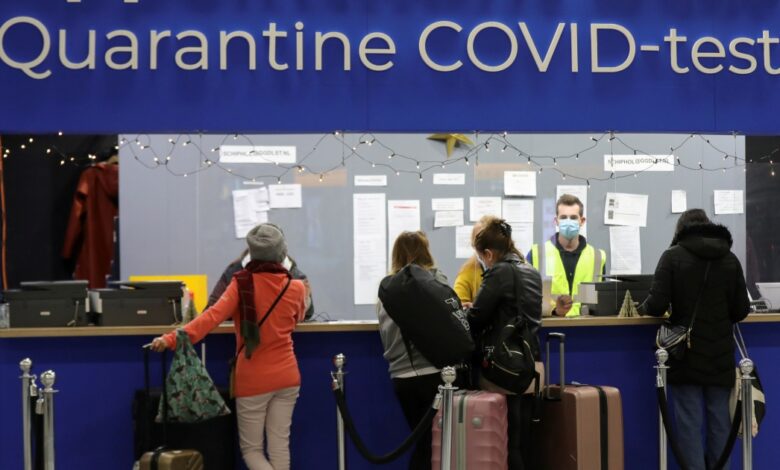Oman bans flights; WHO works to study Omicron

Oman joined other countries in suspending air travel from seven African countries amidst fears of a new variant of COVID-19 virus called Omicron by World Health Organization.
According to a Supreme Committee statement, a travel ban from Zimbabwe, South Africa, Namibia, Botswana, Lesotho, Eswatini and Mozambique came into effect starting November 28, which is part of Oman’s keenness to prevent the spread of the new variant.
‘The ban includes passengers from any other country if they have passed through any of these seven countries in the 14 days preceding the request to enter the sultanate,’ the statement said.
The Civil Aviation Authority (CAA) has stated that Omani citizens, diplomats, health workers and their families as well as citizens of the said countries who have valid residence in Oman are excluded from the decision.
‘All those excluded from the decision, including Omani citizens, are subject to a COVID-19 PCR test upon arrival and mandatory seven days institutional quarantine with another PCR test on the sixth day,’ the CAA stated.
On Monday, WHO chief Tedros Adhanom Ghebreyesus tweeted that the organisation is working with scientists around the world to better understand key aspects of the Omicron variant and its impact.
Considering Omicron is designated a Variant of Concern, there are several measures WHO recommends countries to undertake, including enhancing surveillance and sequencing of cases, sharing genome sequences on publicly available databases, such as GISAID, reporting initial cases or clusters to WHO, and performing field investigations and laboratory assessments to better understand if Omicron has different transmission or disease characteristics, or if it impacts effectiveness of vaccines.
WHO said countries should continue to implement effective public health measures to reduce COVID-19 circulation overall, using a risk analysis and science-based approach. ‘It is vitally important that inequities in access to COVID-19 vaccines are urgen-tly addressed to ensure that vulnerable groups everywhere, incl- uding health workers and older persons, receive their first and second doses, alongside equitable access to treatment and diagnostics,’ the WHO stated.
As for the recommended actions for people, WHO said the most effective steps individuals can take to reduce the spread of the COVID-19 virus is to keep a physical distance of at least 1m from others, wear a well-fitting mask, open windows to improve ventilation, avoid poorly ventilated or crowded spaces, keep hands clean, cough or sneeze into a bent elbow or tissue, and get vaccinated when it’s their turn.
New variant major concern for the region: Dr Mandhari
Dr Ahmed al Mandhari, WHO Regional Director for the Eastern Mediterranean, has stated that the emergence of the new COVID-19 virus Variant of Concern, Omicron, is a major reason for worry for inhabitants of WHO’s Eastern Mediterranean region just as it is across the world.
The variant has not been officially announced in the 22 countries and territories of the region, “but we all know that it is just a matter of time before the first case is reported”, Dr Mandhari said.
“With the approaching winter, temperatures are dropping across the region, leading people to congregate in closed spaces. Combined with still low rates of adherence to preventative measures such as mask use and physical distancing, WHO is extremely concerned that increasing cases and deaths may be reported over the coming weeks. Unvaccinated people are most at risk of severe and complicated infection, hospitalisation and death,” he said.
Join 'Lesotho News' WhatsApp Channel
Get breaking Lesotho news — delivered directly to your WhatsApp.
CLICK HERE TO JOIN



